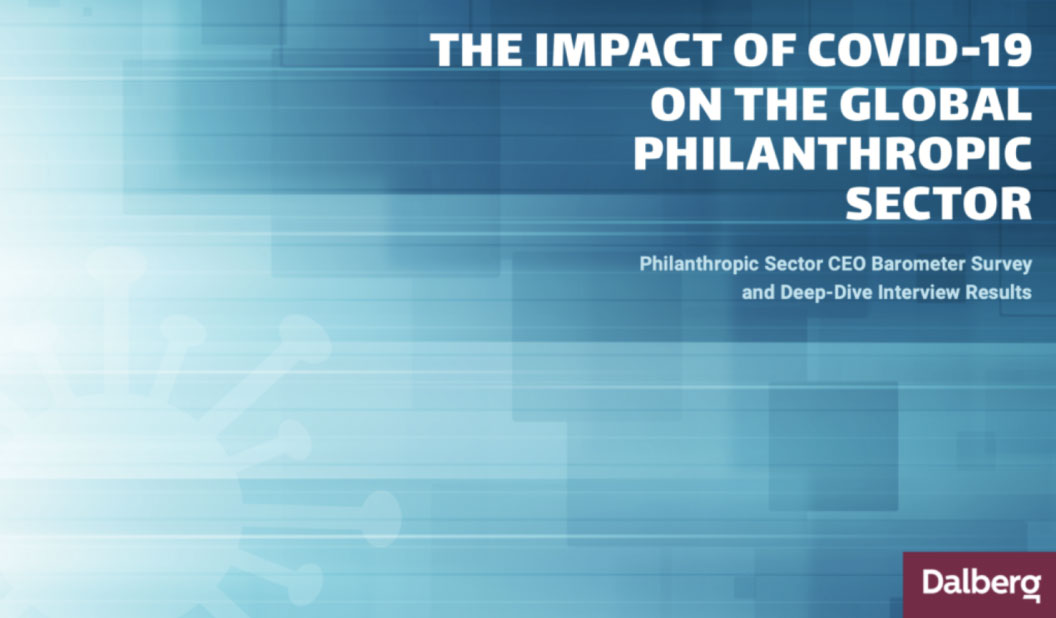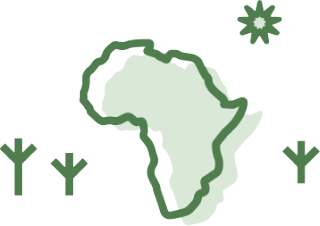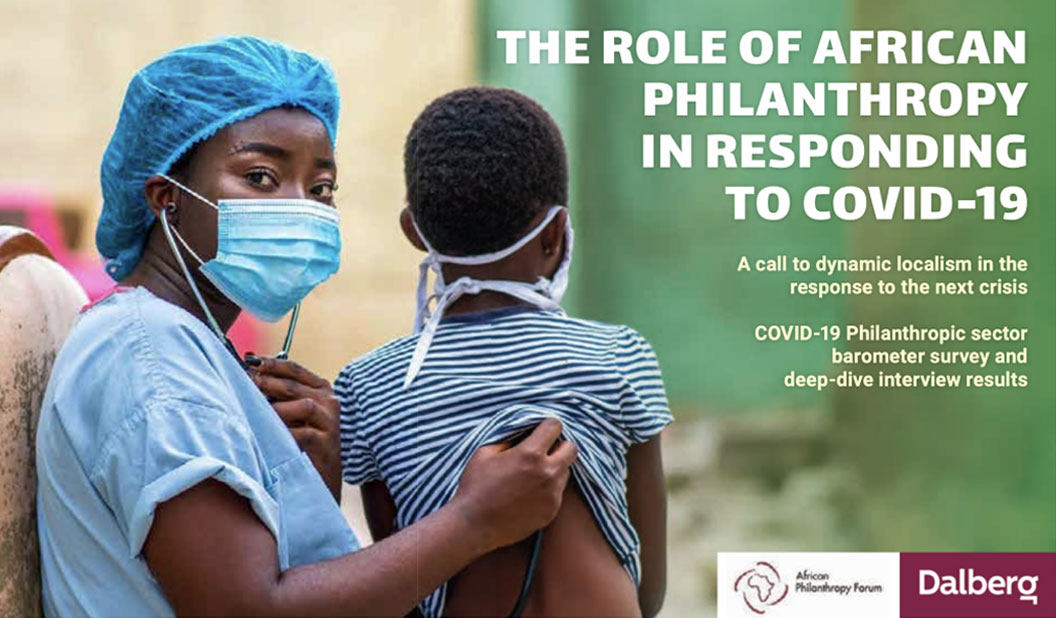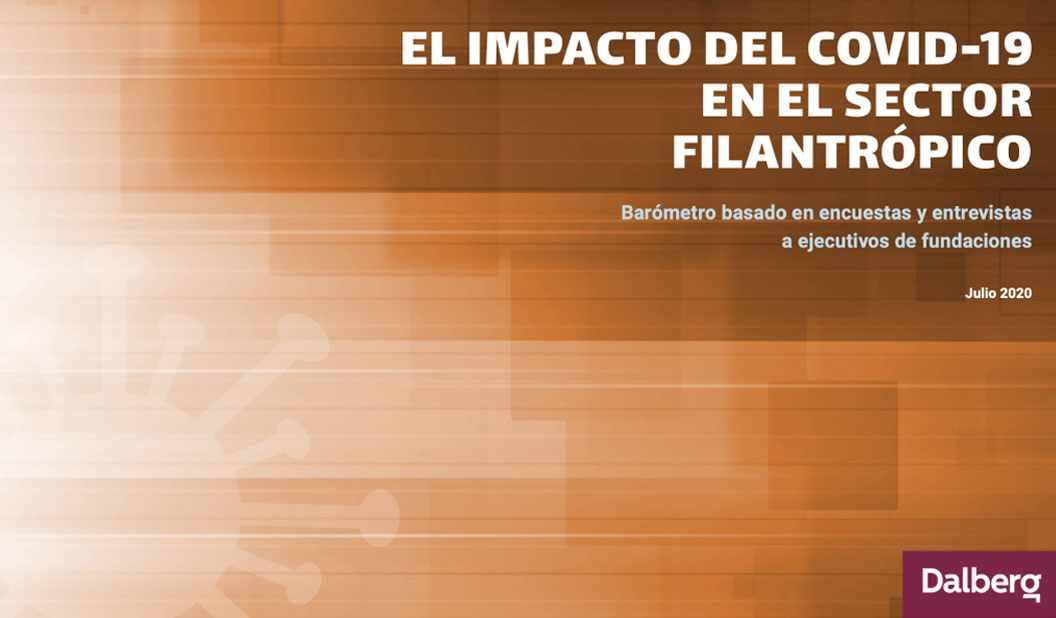Dalberg uses cookies and related technologies to improve the way the site functions. A cookie is a text file that is stored on your device. We use these text files for functionality such as to analyze our traffic or to personalize content. You can easily control how we use cookies on your device by adjusting the settings below, and you may also change those settings at any time by visiting our privacy policy page.
Philanthropies are a key part of the communities of action Dalberg engages with and helps mobilize. We have created a collective of four studies to examine the impact of the Covid-19 crisis on foundations the world over through the eyes of hundreds of philanthropy leaders.
From how philanthropies current actions will affect what’s on the horizon, to the funding and allocation challenges wrought by the pandemic, this data-driven body of work provides a pathway into the challenges and opportunities that lie ahead for foundations and the people they serve.
Dalberg set out to fill the current data gaps about how philanthropies are responding to the crisis.
Each year foundations around the globe spend more than USD 150 billion to support grantees that are working across a vast array of programs and focus areas. However, the massive social and economic disruption surrounding the 2020 global pandemic has catalyzed a transformational wave of change across the philanthropic sector — and caused philanthropic foundations to re-direct funding for emergency response and post-Covid-19 recovery.
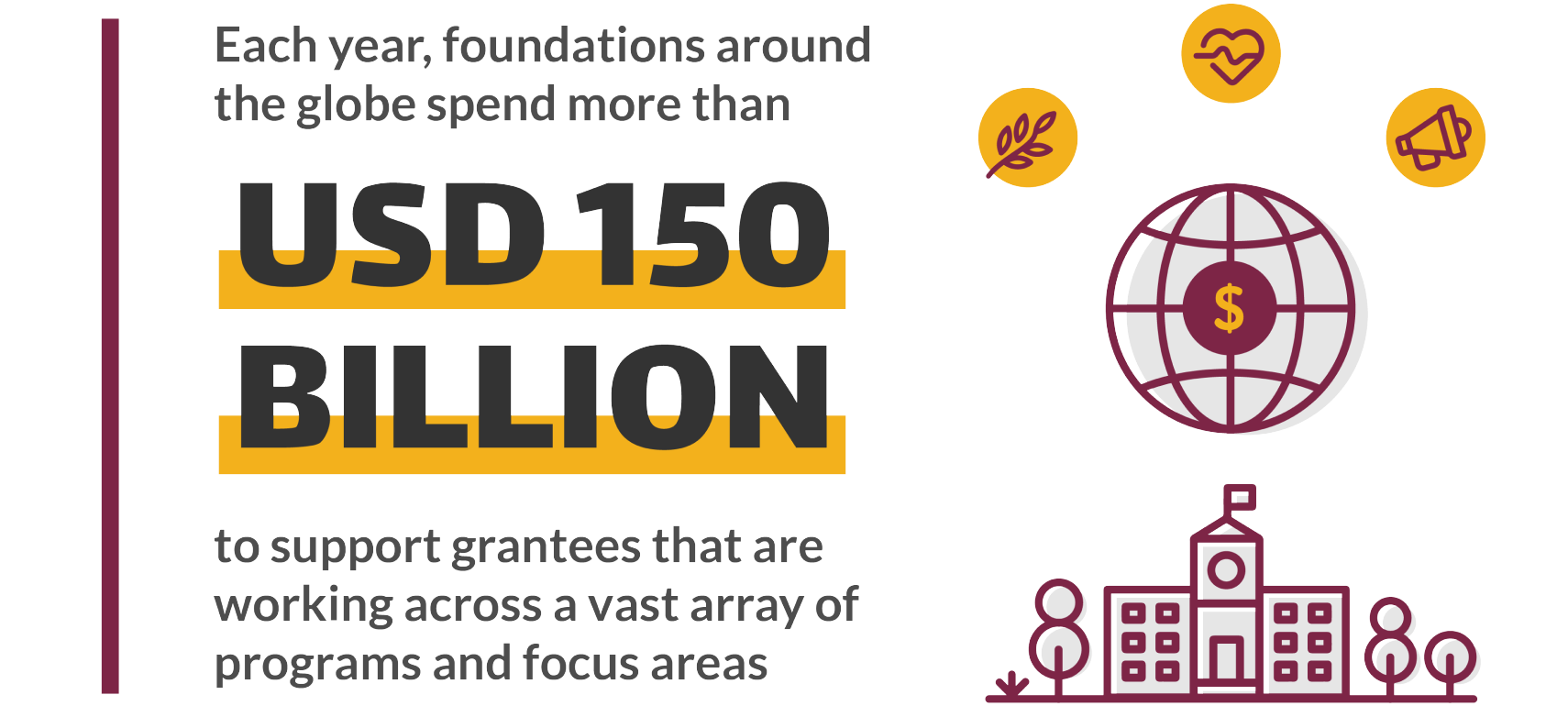
Dalberg set out to fill the current data gaps about how philanthropies are responding to the crisis. We did this through four different Dalberg studies, representing perspectives from global philanthropy leaders, as well as those focused on the United States, Africa, and Latin America.
Through more than 500 surveys, 75 deep-dive interviews, and other sources of input, we examined the effects of the ongoing public health crisis on the work of foundations around the world — including a study that honed in on the intersection of the pandemic, associated economic crisis, and public outcry against structural and systemic racism in the U.S. We also looked to the future, inviting respondents to consider the ways that today’s decisions could affect the shape of philanthropy in the future.
Read on for the four key themes that emerged from the four surveys – and dive into the individual surveys to learn more about philanthropy in the place where you are working.

Key Themes
-

Operational Changes
-

Endowments in Response to the Pandemic
-

Shifting Practices and Sharing Power
-

The Future of Philanthropy
-
Operational Changes
No matter where a foundation operates, the seismic shift created by the pandemic has impacted foundations at nearly every level—from overall spending, to giving priorities, to internal operations, and strategic planning.
-
Endowments in Response to the Pandemic
Most foundations have increased, or are considering increasing, their share of endowments disbursed due to Covid-19 — though the impact of these funding increases on net philanthropic giving is not yet clear.
-
Shifting Practices and Sharing Power
In response to the pandemic, foundations have had to adapt how they resource, prioritize, and internally operate. With these key lenses in mind, our studies found significant shifts in practices (e.g. in the U.S. and Africa, approximately 60% and 71% of foundations are increasing giving beyond planned 2020 levels, respectively) but as detailed in our U.S.-focused survey, there were few examples of foundations truly sharing power through ceding decision-making, control, space, and wealth to communities facing structural and systemic racism.
-
The Future of Philanthropy
Foundation leaders we spoke with overwhelmingly recognize this unprecedented time as an opportunity to reflect on questions regarding philanthropy that were already being raised prior to Covid-19, but have now taken on new urgency. From whether foundations should step into areas that were previously in the government’s purview or how to support local issues and structures, the sector is at an inflection point.
With these themes in hand, we invite you to explore what philanthropy looks like around the globe. Click on the individual surveys below to see our global, U.S., Africa, and Latin America analysis.
Learn more about Dalberg’s philanthropy studies
In this inaugural study with more than 170 global philanthropy leaders, Dalberg’s analysis draws from a diverse pool of foundations worldwide to create an initial understanding of the impact of Covid-19 and how the philanthropic sector could transform in response to the pandemic.

Shifting Practices, Sharing Power? How the U.S. Philanthropic Sector is Responding to the 2020 Crises
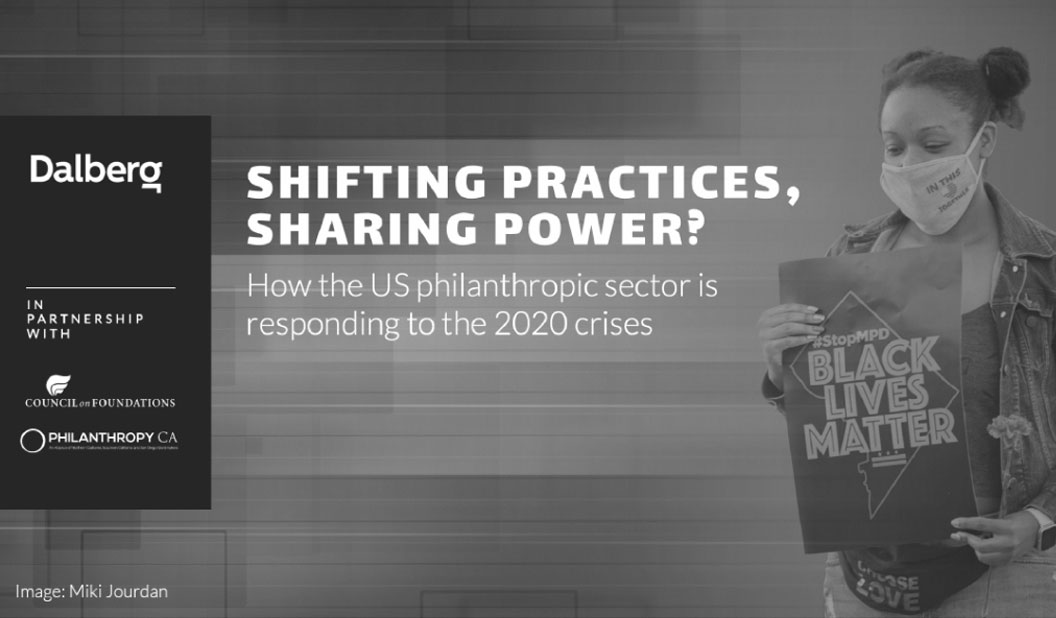
From an unprecedented global pandemic and associated economic crisis, to the unjust murders and treatment of Black, Indigenous, and People of Color, the crises of 2020 deeply affected millions of Americans and laid bare the inequities in our systems and institutions. In this United States-focused study, the Dalberg Americas team, in partnership with the Council on Foundations and Philanthropy California, outline the critical next steps and fundamental shifts respondents raised as necessary to build an equitable future.
The impact of the pandemic on Africa has been significant: millions of Africans who were economically vulnerable before the crisis have lost their jobs and livelihoods, and overburdened health systems are now in greater distress, among other impacts. In this Africa-focused report, Dalberg Advisors and the African Philanthropy Forum shed light on how philanthropy in Africa is changing in response to this crisis and what steps are needed to drive a more effective response, both in the short- and long-term.
Covid-19 has both exposed and exacerbated socioeconomic inequities around the world, including in Latin America which had some of the highest inequality rates in the world before the crisis. As part of our global study on the philanthropic sector’s response to Covid-19, we engaged with local organizations in Latin America and assessed the specific impact and long-term implications of the pandemic for the philanthropic sector in the region.


